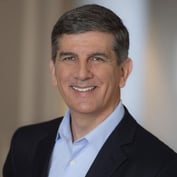The United States may be starting to pull out of its worst recession since the 1930s but Americans of all generations, including boomers, are vowing not to return to their free-spending ways. According to a recent survey by global consulting firm AlixPartners, Americans say they plan to save an astounding 14 percent of their income when the recession ends.
Household savings rates wobbled mostly within the 7 percent to 10 percent range from the end of World War II through the early 1990s, then plunged to 2 percent or below for most of the 2000s (and hitting 0.3 percent in 2005).
The good and bad of saving too much
If Americans make good on their intentions – admittedly, a big assumption – the economic ramifications would ripple across the global economy.
A savings rate of 14 percent would suck about $1 trillion of consumer spending out of the economy, according to AlixPartners. That would devastate sectors dependent upon consumer spending such as retail and domestic and foreign manufacturing.
Boomers still have time to rebuild their net worth from pre-recession levels, and in various surveys that we’ve seen, a growing percentage say they will delay retirement until they can afford it.








 October 31, 2009 at 08:00 PM
October 31, 2009 at 08:00 PM










